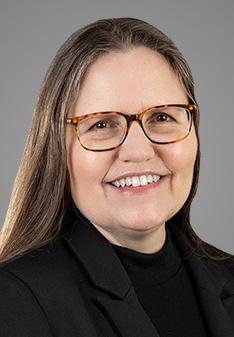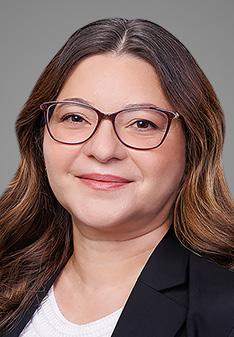




Cynthia O’Neill Partner Emeritus | San Francisco
Ronni Cuccia Associate | Los Angeles


A City decided to terminate the employment of a parks and landscape inspector based on a pattern of workplace misconduct that included multiple incidents of unprofessional, aggressive, or abusive behavior toward City employees, members of the public, and Chamber of Commerce staff. Witnesses said the inspector made verbal threats, yelled profanities, and intimidated people at public events. In one incident, he allegedly challenged a coworker to a fight. An outside investigation substantiated many of these claims. The inspector also failed to report that a coworker made sexual comments in violation of the City’s harassment prevention policy.
The inspector appealed. He argued that his termination was unjustified because he had a good work history, received no prior discipline, and the allegations were either exaggerated or the result of coworker animosity. His representative argued that the City tolerated foul language from other employees.
Joung and Allison convinced the hearing officer that termination was warranted due to the seriousness and repeated nature of the misconduct, the inspector’s lack of accountability, and the risk of recurrence. The hearing officer credited the thorough investigation the outside investigator conducted, and agreed that the misconduct violated City policies, including the workplace violence prevention policy, the harassment policy, and standards of professional conduct. The hearing officer found that that progressive discipline was not required under these circumstances and concluded that termination was justified and appropriate.
Police officers were pursuing a vehicle a possible burglary suspect was driving. The officers had no information to suggest the suspect was armed. One police officer was some distance away from the pursuit, but as the suspect’s vehicle approached, that officer exited his vehicle, and fired 18 rounds into the suspect’s vehicle. Neither the suspect nor any other individual was hit or injured, and the pursuit continued.
The police department investigated the officer’s conduct, and found that it violated numerous department policies. The surveillance video footage did not corroborate the officer’s testimony or justification for his actions.
The police department terminated the officer, and the officer appealed the termination to the civil service commission. Through written briefing and a hearing, Jeff convinced the commission that the officer’s policy violations and willful disregard for safety constituted grounds for discipline. The police officer then appealed to the city council. After consideration during a closed session, the city council too upheld the officer’s termination and civil service commission’s ruling.
A County’s correctional sergeant conducted a “nighttime” firearms qualification for a group of sworn officers at approximately 1:00 p.m.—well before dusk—despite his knowledge that this qualification must be conducted under low-light conditions. The sergeant completed and distributed qualification forms to the officers that indicated: the tests occurred at 5:00 p.m.; and that one officer had qualified with a shotgun, even though that officer had not. The County’s Sheriff’s Department investigated and terminated the sergeant. The sergeant appealed.
The sergeant admitted during the hearing that he knowingly entered false information on the forms, but claimed he was intimidated by a higher-ranking officer who needed the nighttime qualification. The sergeant retained the originals of the forms and made no effort to disclose the falsification until his supervisors questioned him the following day.
The hearing officer decided that the County met its burden of proving that sergeant was intentionally dishonest with the purpose of inducing reliance, including by distributing the falsified forms to sworn personnel. The decision also found the sergeant’s explanations and claimed intent to later disclose the issue were not credible. The penalty of termination was reasonable given the seriousness of the misconduct, the sergeant’s supervisory rank, and his failure to take responsibility. The hearing officer concluded that the dishonesty undermined public trust and internal integrity, and justified dismissal under the governing Memorandum of Understanding.
Lilian Carranza, then a captain in the Los Angeles Police Department (LAPD or Department), learned that a photo of a topless woman, which was falsely said to be her, was circulating among LAPD personnel. One of her subordinates told her: 1) he had seen on-duty officers looking at the photo on a cellphone and making lewd comments about Carranza; and 2) he had heard officers were talking about the photo everywhere he went. Carranza asked the Department to notify personnel that the photo was not of her, and to order they stop sharing it.
The Department investigated. The investigation found that an unknown Department employee, while on or off-duty, circulated a photograph of a nude woman throughout the Department and indicated it was Carranza. The investigation identified 10 to 13 people who saw the photo and four separate incidents of people viewing or hearing about the photo. Carranza received a letter from the LAPD that said appropriate penalties would be imposed but did not disclose further details, citing confidentiality reasons. Carranza later learned no officers were disciplined.
The Department did not notify personnel that the photo was not Carranza, nor order that employees stop sharing it.
Carranza sued the City of Los Angeles, asserting a single cause of action for hostile work environment due to sexual harassment under the Fair Employment and Housing Act (FEHA). A jury found in Carranza’s favor, and determined that the LAPD failed to take immediate and appropriate corrective action despite that it knew of the conduct. It awarded Carranza $4 million in noneconomic damages.
The City appealed. The City claimed that there was insubstantial evidence that the harassment was sufficiently severe or pervasive to alter the conditions of Carranza’s employment and create an abusive work environment.
The California Court of Appeal rejected the City’s claim. The Court determined that substantial evidence supported the jury’s determination that Carranza endured severe or pervasive harassment that altered the conditions of her workplace, based on Carranza’s secondhand knowledge that the photo was widely circulating. Carranza understood that the photo circulated for some length of time and involved “dozens if not hundreds” of officers, both identified and unknown, throughout the LAPD.
Plus, despite Carranza’s repeated requests, the Department did not order LAPD officers to stop sharing the photo, advise them that it was not Carranza in the photo, or discipline anyone who distributed the photo. The fact that LAPD allowed the distribution to continue unchecked supported not only Carranza claims that LAPD’s response to the harassment was not sufficient, but also demonstrated the pervasiveness and severity of the harassment itself and the impact on Carranza’s work environment.
Carranza v. City of Los Angeles, 111 Cal.App.5th 388 (2025).
Kheloud Allos worked for Poway Unified School District (PUSD). When the COVID-19 pandemic began in 2020 she began working remotely. After in-person operations resumed, Allos requested to continue working from home. Initially, she based her request on her desire to protect her elderly mother. Later, she claimed her own medical vulnerabilities made in-person work risky. She claimed that her past reaction to a vaccine meant she could not safely take the COVID-19 vaccine.
PUSD responded with a series of interactive meetings—six in total over nearly two years—to explore accommodations. The district offered Allos a private office and various hybrid work arrangements. Ultimately, Allos agreed to a hybrid schedule and later announced her retirement. She then filed a lawsuit against PUSD under California’s Fair Employment and Housing Act (FEHA) and various Labor Code provisions, claiming disability discrimination, failure to accommodate, retaliation, and associational discrimination (related to caring for her disabled mother), among others.
PUSD filed a motion for summary judgment asserting Allos’s claims were barred by Government Code section 855.4, which provides immunity to public entitles for decisions related to preventing disease or controlling its spread. The court agreed, holding that PUSD’s decision to end remote work and require in-person attendance was a discretionary act protected under section 855.4. The court also found that Allos’s disability claims failed. The court noted that PUSD had multiple interactive meetings with Allos and provided various accommodations.
The California Court of Appeal affirmed the trial court’s judgment. The Court agreed that section 855.4 provided immunity to PUSD for its decisions related to COVID-19. The court also found that Allos failed to present evidence of a qualifying disability under FEHA, since her alleged vaccine allergy and other health conditions did not constitute a disability. The Court held that PUSD’s interactive process and accommodations were reasonable and that no adverse employment action had occurred because Allos voluntarily retired. The Court concluded that Allos’s claims for associational discrimination, retaliation, and Labor Code violations had no merit.
Kheloud Allos v. Poway Unified School District, 2025 Cal.App. LEXIS 431.
The U.S. Supreme Court affirmed the decision of the Court of Appeals for the Eleventh Circuit, which held that retired employees are not “qualified individuals” under Title I of the American with Disabilities Act (ADA), and therefore are not entitled to sue their former employer for post-employment benefits. Ninth Circuit precedent was already aligned with this U.S. Supreme Court decision.
The plaintiff was Karyn Stanley, a firefighter who was diagnosed with Parkinson’s disease. In 2018, Stanley retired after her disease left her incapable of performing essential job duties. After retiring, Stanley learned that in 2003, the City changed its policy to only provide retirement benefits to disabled retirees for 24 months following their retirement. Stanley sued in 2020.
The ADA prohibits employers from adopting and implementing policies or practices that discriminate against “qualified individuals” based on the individual’s disability. Title I of the ADA defines a “qualified individual” to mean someone with a disability who, with or without reasonable accommodation, can perform the essential functions of the job that they hold or desire.
The Eleventh Circuit Court of Appeals held that Stanley could not sue in 2020 because, at that point, she was retired from the City and therefore not a “qualified individual” under the ADA.
The U.S. Supreme Court affirmed, holding that Stanley was not a “qualified individual” under the ADA when she filed suit because she was neither a qualified applicant for employment nor a current employee at the time of the alleged discrimination.
Stanley v. City of Sanford, 145 S.Ct. 2058 (2025).
The U.S. Supreme Court unanimously prohibited the use of a higher standard for reverse discrimination claims. The Court ruled that members of a majority group are not required to show “background circumstances” to support allegations of reverse discrimination. The ruling rejects the decision of the U.S. Court of Appeals for the Sixth Circuit, which held that plaintiff Marlean Ames, a heterosexual woman, needed evidence of “background circumstances” to support her reverse discrimination allegations. Ninth Circuit precedent was already aligned with this U.S. Supreme Court decision.
Ames, was a former employee for the Department of Youth Services (Department). Her lawsuit alleged that the Department discriminated against her based on her sexual orientation in violation of Title VII of the Civil Rights Act of 1964.
In a 2018 performance evaluation, Ames’s supervisor rated Ames as meeting or exceeding expectations in numerous categories as a Program Administrator. In 2019, Ames unsuccessfully applied for a new position as Bureau Chief. Instead, the Department decisionmakers hired a gay woman. Soon after, the Department demoted Ames to her previously-held secretary position, at a much lower pay rate. The Department then hired a gay man to replace Ames as Program Administrator.
Ames alleged that the Department had discriminated against her based on her heterosexual orientation. The District Court granted the Department’s summary judgment motion, holding that because Ames was a member of a majority group, she was required to show “background circumstances” to support her reverse discrimination allegations. The Court of Appeals affirmed the District Court decision.
The U.S. Supreme Court’s opinion vacated the Sixth Circuit’s ruling and remanded the case. The opinion holds that majority group plaintiffs do not have to show “background circumstances” to establish TVII discrimination. Such a rule is contrary to the text of Title VII and longstanding Supreme Court precedent. In addition, the decision makes clear that majority group plaintiffs do not have a higher burden to show discrimination than a minority group plaintiff.
Ames v. Ohio Department of Youth Services, 145 S.Ct .1540 (2025).

California Labor Code section 1102.5 prohibits public employers from retaliating against whistleblowing employees, and allows an employee who wins in court to recover attorney’s fees. Employers have an affirmative defense in section 1102.6 if the employer can prove that the alleged retaliatory conduct “would have occurred for legitimate, independent reasons” had the employee not been a whistleblower. This type of defense is commonly known as a “same-decision defense.”
D’Andre Lampkin, a deputy at the Los Angeles County Sheriff’s Department, told his supervisor about a contentious traffic stop involving a former deputy. Thereafter, Lampkin encountered a variety of adverse actions, including a search of his residence, a suspension, and the termination of his medical benefits.
Lampkin sued the County for whistleblower retaliation in violation of section 1102.5. After trial, the jury found that section 1102.5 protected Lampkin from retaliation, and that Lampkin’s complaint was a factor in the Department’s actions against Lampkin. The jury also found the Department would have made the same decisions anyway, for independent and legitimate reasons. The jury awarded Lampkin no damages.
Lampkin then filed a motion for an order declaring him the prevailing party who was entitled to a fee award. Lampkin claimed he was entitled to fees under a prior Court of Appeal case -Harris v. City of Santa Monica. That case held that a same-decision defense does not preclude a fee award in a Fair Employment and Housing Act (FEHA) case. The trial court granted Lampkin’s motion and awarded Lampkin $400,000 in attorney’s fees. The County appealed.
The California Court of Appeal reversed the fee award. The Court distinguished Harris on several grounds. First, FEHA provides discretionary authority to award fees to a “prevailing party,” while section 1102.5(j) only permits fees for one who brings a “successful action.” Also, section 1102.6 provides comprehensive procedural rules specific to whistleblower claims, including the same-decision defense, and does not contain any language permitting fees once that defense is established. The Court held that an employee’s whistleblower action is not “successful” under section 1102.5 if the employer has established the same-decision defense and the employee obtains no relief.
Lampkin v. County of Los Angeles, 2025 Cal.App. LEXIS 434.


For more information on some of our upcoming events and trainings, click on the icons:



Members of Liebert Cassidy Whitmore’s employment relations consortiums may speak directly to an LCW attorney free of charge regarding questions that are not related to ongoing legal matters that LCW is handling for the agency, or that do not require in-depth research, document review, or written opinions. Consortium call questions run the gamut of topics, from leaves of absence to employment applications, disciplinary concerns and more. This feature describes an interesting consortium call and how the question was answered. We will protect the confidentiality of client communications with LCW attorneys by changing or omitting details.
Our agency discovered a potential independent contractor’s criminal background during a routine background check and no longer wants to move forward with this contractor. What steps must the agency take to comply with California’s “Fair Chance Act?”
The Fair Chance Act does not apply to independent contractors. Thus, the agency is not required to go through the same process of notifying the contractor and giving the contractor an opportunity to respond as it would if the agency discovered criminal history of an applicant for employment.

To view this article and the most recent LCW attorney-authored articles, please visit: www.lcwlegal.com/news.
• Partner Steven M. Berliner and Associate John Z. LaCrosse authored an article in Western City titled “Three Developments at CalPERS That City Leaders Need to Know About.” They spotlight proposed legislation that could undo key PEPRA reforms—potentially spiking agency costs and reigniting union negotiations. A must-read for public employers navigating complex retirement laws.
• Co-Managing Partners J. Scott Tiedemann and Melanie Chaney were recently featured in “The Lawyer’s Edge” podcast where they speak about their proven approach to leadership succession planning, the secret behind the firm’s stability and growth and creating a culture that centers around its core values. Listen to the full podcast here: https:// thelawyersedge.com/podcast/tips-for-seamless-leadership-succession/


Kim Catacutan is an experienced human resources professional currently serving as a Classification & Compensation Consultant in the Sacramento office of Liebert Cassidy Whitmore.

Olivia Davis is an Associate in the San Diego office of Liebert Cassidy Whitmore, where she supports clients in all aspects of labor and employment law.

Sandra I. Herrera is Senior Counsel in the Los Angeles office of Liebert Cassidy Whitmore, where she provides legal counsel to clients on a wide range of transactional, business and facilities, and corporate governance matters.

Suneeta H. Israni is an Associate in the Los Angeles office of Liebert Cassidy Whitmore where she represents public sector clients in labor, employment, and litigation matters.


Tavi Kessler is an Associate in the Los Angeles office of Liebert Cassidy Whitmore, where she represents clients in labor, employment, and education law matters.

Jessica Lee is an Associate at Liebert Cassidy Whitmore, where she advises clients on labor and employment matters, including compliance, investigations, and workplace policies.

Hoaithi “Y.T.” Nguyen is Senior Counsel in Liebert Cassidy Whitmore’s San Francisco Office. Y.T. has over 15 years of experience in employment litigation, labor relations and investigations.

Ethan Wicklund is an Associate in the San Francisco office of Liebert Cassidy Whitmore, where he represents clients in labor and employment matters.
Whether you are looking to impress your colleagues or just want to learn more about the law, LCW has your back! Use and share these fun legal facts about various topics in public safety.
• Cal Fire recently opened its new Atwater Training Center at a former Air Force Base in Merced County.
• Los Angeles City Firefighter David Walters and Los Angeles County Fire Fighter Erin Regan were honored with the Pat Tillman Award for Service at the 2025 ESPY Awards.
• Firefighting crews from as far away as Canada and Mexico traveled to Los Angeles to assist with the Palisades and Eaton fires in early 2025.
• The California Department of Civil Rights has published a notice that employers must distribute: 1) at the time of hire; 2) once per year to all employees; 3) upon request; and 4) whenever an employee discloses that they or a family member has been a victim of a qualifying act of violence. (Gov. Code section 12945.8 (k)(1).) The notice can be downloaded here: https://calcivilrights.ca.gov/wp-content/uploads/sites/32/2025/07/Survivors-Right-toTime-Off_English-B.pdf The FAQ can be downloaded here: https://calcivilrights.ca.gov/wp-content/uploads/ sites/32/2025/06/Survivors-Right-to-Time-Off-FAQs_English.pdf

Labor Relations Legislative Update: What Your Agency Needs to Know about New Legal Obligations for 2026 December 11, 2025 10:00 a.m. - 11:00 a.m.
Visit the above links for more information.
Fire agencies have unique cultures, and for agencies and their personnel to be successful they must have a workplace environment that fosters trust, teamwork and harmonious relationships. Conduct that constitutes illegal discrimination, harassment or retaliation can undermine those relationships, can negatively impact public safety, and can lead to costly civil liability for agencies – and some employees - alike.
Our public safety employment law experts routinely represent fire agencies in a host of legal matters and are familiar with fire agency culture, operations and challenges.
This training has been designed with fire agencies in mind to best protect agency employees, preserve agency culture, to help agencies remain legally compliant and avoid costly lawsuits.
California Law Requires:
• 2-hours of training for supervisors every two years (or within six months of promotion)
• 1-hour for all non-supervisory employees every two years
• How harassment, discrimination, and retaliation laws apply
• The difference between unlawful conduct and “gray area” behavior
• Realistic, fire-specific case studies
• The responsibilities of fire employees throughout the chain of command, from firefighters to chiefs
• How to report, document, and respond to complaints or circumstances that could give rise to complaints appropriately

Schedule Your Training Today!
Contact Anna M. Sanzone-Ortiz at asanzone-ortiz@lcwlegal.com for live training.
For On-Demand training contact on-demand@lcwlegal.com.
• 2-Hour Supervisory Training
• 1-Hour Non-Supervisory Training
• Available Live (virtual or in-person) or On-Demand
• Certificates upon completion
• Meets all SB 1343 & SB 778 mandates under California Government Code section 12950.1

